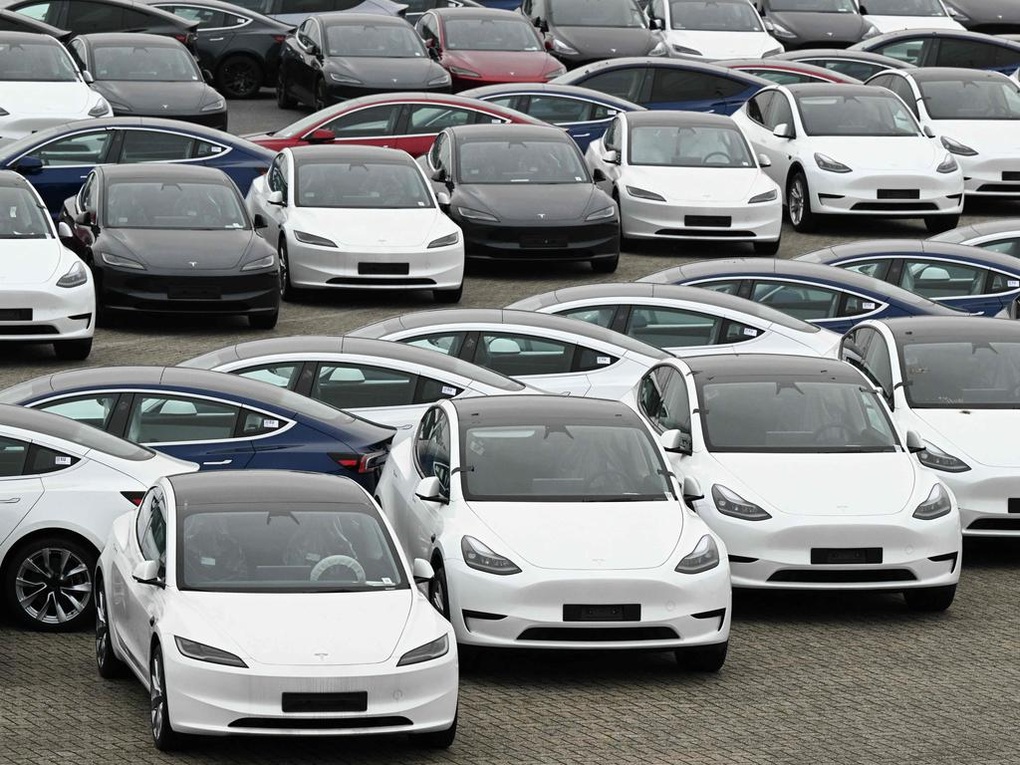
China is looking for new markets to sell electric cars, but is facing trade barriers in the US and Europe. However, Australia does not have such restrictive policies, making it a target market for Chinese automakers.
The electric car market in Australia has been dominated by Tesla for years, but competition is increasing.

Tesla has virtually monopolized the electric car market in Australia for many years (Illustrative photo: AFP).
The MG brand, owned by the Shanghai Automotive Industry Corporation (SAIC), has been successful with the ZS electric car model, and now plans to launch the MG3 PHEV and Cyberster EV models this year.
Meanwhile, BYD has also launched a series of its products, including Atto 3, Dolphin, and Seal; they even almost surpassed Tesla in January.
Other brands, such as XPeng, Geely, Changan, and Leapmotor, all have plans to enter the Australian market.
China's dominance in the electric car market is strengthened by its ability to control key battery materials and low production costs.
The Chinese government has actively supported the electric car industry, significantly reducing production costs domestically. The low prices make Chinese electric cars attractive in price-sensitive markets.
To protect the trade balance, the US has quadrupled tariffs on electric cars imported from China, while the EU also plans to increase variable tariffs to 38%, in addition to the current 10% import duty. In contrast, a spokesperson for the Federal Chamber of Automotive Industries in Australia (FCAI) said that competition in the car market needs to be encouraged.
The FCAI spokesperson said: "Increasing competition ensures that Australians have access to a wide range of vehicles that meet their lifestyle, needs, and diverse price points.
The availability of Chinese-made vehicles has increased consumer choices, allowing Australians to buy the vehicles that best suit their work, entertainment, and family needs."
The demand for electric cars in Australia is still increasing, with 98,000 vehicles expected to be in consumers' hands by 2023, accounting for more than half of the total electric vehicles on the road in Australia.
This country's electric car development strategy also contributes to promoting the use of electric vehicles. The Australian Renewable Energy Agency has committed $500 million to expand electric vehicle charging infrastructure.
However, Scott Dwyer, research director at the Institute for Sustainable Futures at the University of Technology Sydney, warns that trends could change.
He said: "There is still a risk that the electric car market will slow down, as in more developed markets. The challenge is to ensure that the development of Australia's charging infrastructure truly keeps pace or exceeds the rate of electric vehicle sales."
Hãy là người đầu tiên bình luận!
Bình luận: